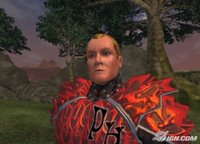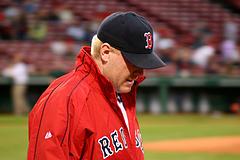Schillings Baseball Career started in Boston as a minor leaguer in the farm system. He was traded away to the Baltimor Orioles in 1988 for Mike Boddicker. His first major league game was in 1988 with the Orioles. He spent one year with the Astros (1991), and then moved on to the Philadelphia Phillies. He pitched for the Phillies from 1992 to 2000.
In 1993, Curt helped the Phillies to upset the defending Atlanta Braves in the National League Championship Series. He earned the NLCS MVP award that year.
Early MLB Career (1988-2000)
Schilling began his professional career as a prospect in the Boston farm system, but was traded to the Baltimore Orioles in 1988 for Mike Boddicker. His major league debut was with the Orioles (1988-1990), he spent one year with the Houston Astros (1991), and then spent more than eight seasons with the Philadelphia Phillies (1992-2000). The Phillies lost to the Blue Jays in six games, despite Curt's five hit shutout to win in game 5.
Apparently, Schilling was so uncomfortable when Williams was on the mound in game 6, that he was frequently caught on camera burying his face in a white towel, an act which upset his teammates.
He was traded mid-season to the Diamondbacks in 2000. With Arizona, he went 22-6 with a 2.98 ERA in 2001 and went 4-0 with a 1.12 ERA in the playoffs. In the 2001 World Series the Diamondbacks beat the New York Yankees in 7 games. Schilling shared the 2001 World Series MVP Award star with teammate Randy Johnson. He and Johnson also shared Sports Illustrated magazine's 2001 "Sportsmen of the Year" award. In 2002, he went 23-7 with a 3.23 ERA. Both years he finished second in the Cy Young Award voting to Johnson.
During the off season, November 2003, Curt was traded to the Red Sox. In 2004, Curt helped the Sox win their first world series in 86 years. He went 21-6 with a 3.26 ERA and was selected for the 6th time to join the all-star team
In November 2003, the Diamondbacks traded Schilling to the Boston Red Sox. On September 16, 2004, Schilling won his twentieth game of the season for the Red Sox, becoming the fifth Boston pitcher to win 20 or more games in his first season with the team, and the first since Hall of Famer Dennis Eckersley in 1978. Schilling would go on to another win, ending his regular season with a 21-6 record. He averaged 5.8 K's for every walk allowed, the best ratio in the A.L. and 3rd-best in the majors behind Milwaukee's Ben Sheets and Arizona's Randy Johnson.
Despite a disastrous 1st game of the series, Schilling won Game 6 of the 2004 American League Championship Series against the New York Yankees. Notably, he won this game playing on an injured ankle - the same injuries that contributed to his disastrous outing in Game 1 of the ALCS. These injuries were so acute that by the end of his performance that day his white sock was soaked with blood.
The win forced a Game 7, making the Red Sox the first team in post-season Major League Baseball history to come back from a three-games-to-none deficit. The Red Sox would go on to win Game 7 and the ALCS and make their first World Series appearance since 1986. He pitched (and won) Game 2 of the 2004 World Series for the Red Sox against the St. Louis Cardinals. In both series, he had to have the tendon in his right ankle stabilized repeatedly, in what has become known as the Schilling Tendon Procedure, after the tendon sheath was torn during his Game 1 ALDS appearance against the Anaheim Angels. As in game 6 of the ALCS, Schilling's sock was soaked with blood from the sutures used in this medical procedure. This second "bloody" sock was placed in the Baseball Hall of Fame after Boston's victory over St. Louis in the World Series. A 4-game sweep of the World Series gave Boston its first World Series championship since 1918.
Schilling was once again runner-up in Cy Young voting in 2004, this time to Minnesota Twins hurler Johan Santana, who received all 28 first-place votes. Schilling received 27 of the 28 second-place votes. Later, the entire Red Sox team was named Sports Illustrated's 2004 Sportsmen of the Year, making Schilling only the second person to have won or shared that award twice. Schilling's ankle injury had an immense effect on his pitching performance in 2005. He began the year on the disabled list, and even when he returned, he simply wasn't the Curt Schilling everyone knew. His velocity was down, his control was off, and his signature splitter pitch didn't have much bite to it. After being placed on the disabled list again, he returned in July as Boston's closer. The idea was that Schilling would work out of the bullpen until gaining enough strength to rejoin the starting rotation. However, this experiment, for the most part, was unsuccessful. Schilling did earn some saves, but was mostly ineffective. He eventually returned to the starting rotation and continued to struggle. However, he did have an excellent start against the Yankees in a September game, which was easily the highlight of his season. The Red Sox made it to the playoffs, but were swept by the Chicago White Sox in three games. Schilling was set to start the fourth game, but never got the chance.
For the 2006 season, Schilling is said to be healthy, and apparently his ankle is no longer an issue. Schilling went undefeated in his first four starts of the season, boasting a minuscule 1.61 ERA. This strong early performance has silenced a number of critics who speculated that he was nearing the end of his career.
On Saturday, May 27, 2006, Schilling earned his 200th career win, the 104th major league pitcher to accomplish the feat. The Red Sox beat Tampa Bay, 6-4.
 Curt Schilling loves playing EverQuest so much (and his passion for helping in the fight against ALS) that he decided to move into the world of Everquest. Permanently.
Curt Schilling loves playing EverQuest so much (and his passion for helping in the fight against ALS) that he decided to move into the world of Everquest. Permanently.



